To resolve a seized Hyundai Sonata engine, promptly identify signs like unusual noises or overheating.
Consult a professional mechanic immediately for diagnosis and repair.
Regular maintenance and timely addressing of issues can prevent such occurrences.
What Causes a Hyundai Sonata Engine to Seize?
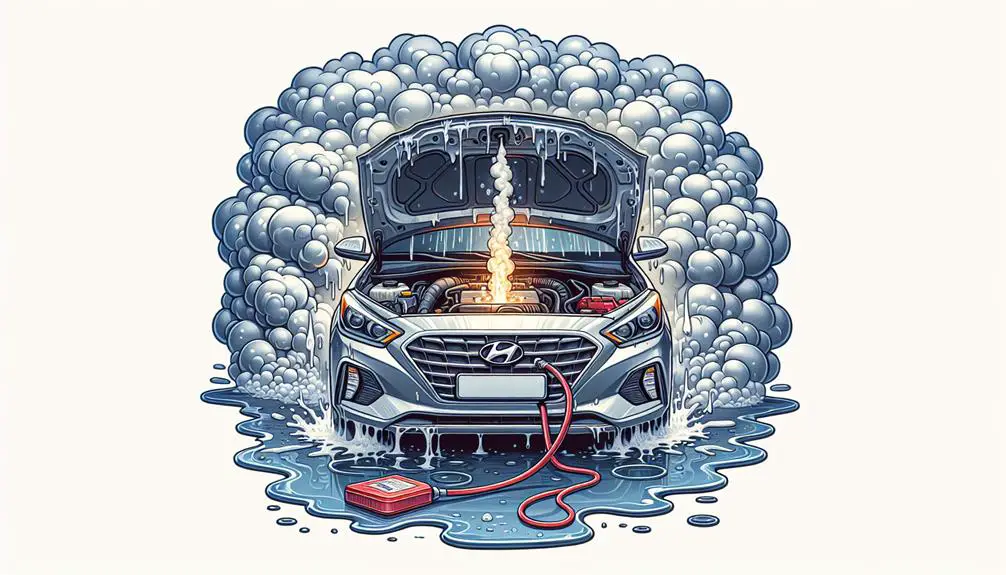
A Hyundai Sonata engine seizes mainly due to inadequate lubrication or overheating. These problems can stem from low or poor-quality oil, cooling system faults, or a blown head gasket. Regular maintenance and using the correct oil type are essential to prevent this issue.
Signs of Impending Engine Failure in Hyundai Sonatas
If your Hyundai Sonata often stalls or loses power suddenly while driving, it might mean the engine could fail soon. Don’t ignore these warnings because they can cause big damage to the engine if not fixed quickly.
Look out for these signs:
- Strange Noises: If you hear odd knocking, tapping, or grinding sounds from the engine, it might mean trouble. These noises can show that parts are worn out or the oil pressure is too low, which can lead to big engine problems if not taken care of.
- A Lot of Exhaust Smoke: Seeing more exhaust smoke than usual from your Sonata, especially with a burning smell, is a bad sign. Blue smoke means oil is burning, white smoke suggests a coolant leak, and black smoke indicates a problem with the fuel system.
- Check Engine Light On: If the check engine light stays on, it might be warning you about engine issues. Hyundai Sonatas have advanced systems that find engine problems. Ignoring this light might make a small issue turn into a huge engine failure.
If you see any of these signs, get your Hyundai Sonata checked by a professional mechanic right away. Dealing with these issues early can prevent big damage and save you money on repairs later.
How to Identify if Your Hyundai Sonata Engine Has Seized?
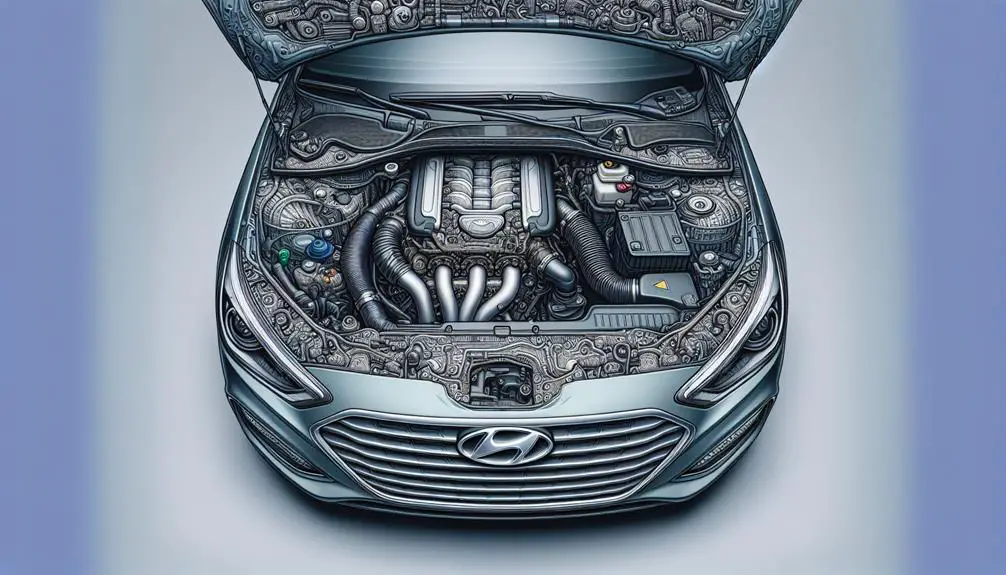
If your Hyundai Sonata is showing signs of a sudden loss of power, strange noises from the engine, difficulty starting, or overheating, it might indicate a seized engine.
When driving, if you experience a sudden halt in power and hear knocking or clunking sounds, your engine could be in trouble. Difficulty in starting the car, or it failing to start with just a clicking noise when turning the key, suggests the engine might’ve seized.
Overheating, indicated by the temperature gauge hitting the red zone or steam/smoke emanating from under the hood, necessitates immediate action to prevent further damage. A significant drop in oil pressure, triggering the dashboard’s oil pressure warning light, also points to this issue.
Visually, a loose or detached serpentine belt might be observed, a potential result of engine seizure. If engine seizure is suspected, consulting a professional mechanic for a thorough inspection and diagnosis is crucial to prevent additional damage.
Symptoms of a Seized Engine: What to Look Out For
Identifying signs of a seized engine in your Hyundai Sonata is important to prevent further damage. Look out for these main indicators:
- Dashboard Warning Lights: Watch your dashboard for any lights that turn on, especially the oil pressure light. This light coming on or flashing might mean your engine has low oil pressure, a common reason engines seize.
- Strange Noises: Listen for odd sounds like knocking, clanking, or grinding from the engine. These noises can suggest the engine is damaged inside or isn’t getting enough lubrication, which could cause it to seize.
- Engine Won’t Start: If your Hyundai Sonata’s engine doesn’t start or is hard to start, this might show there’s internal damage or the engine has seized. This usually happens after you’ve seen other warning signs.
Paying attention to these symptoms early on can help you catch an engine seizure before it gets worse, saving you from expensive repairs.
If you notice any of these signs, it’s important to deal with the problem quickly to avoid more damage to your Hyundai Sonata’s engine.
Diagnostic Tests to Confirm Engine Seizure in Hyundai Sonata
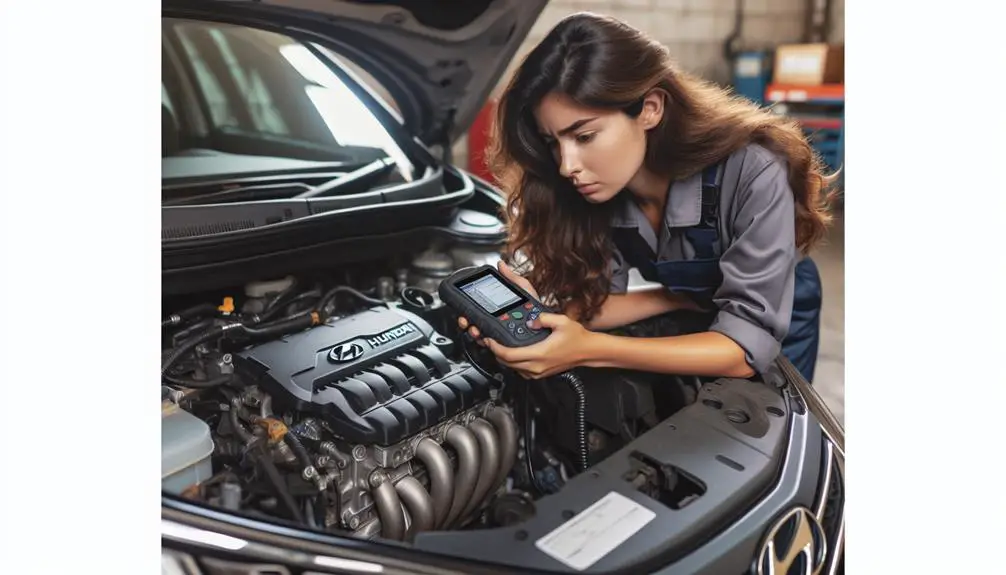
If you think your Hyundai Sonata’s engine has seized, you should do some tests to make sure. Here’s what to do:
- Check Oil Level and Quality:
- First, use the dipstick to see if the oil level is low. Finding metal particles in the oil or if the oil looks dirty and thick, it could mean there’s damage inside the engine that might cause it to seize.
- Look at the Battery and Starter Motor:
- A bad battery might make it seem like the engine has seized. Check if the battery’s power matches what the manufacturer says it should be. Also, check the starter motor. If it can’t start the engine or makes harsh sounds, the engine might be seized.
- Do a Compression Test:
- Use a tool to measure how much pressure is in each engine cylinder. If the pressure is very different between cylinders, it might mean there’s damage inside the engine that could cause it to seize.
Preventive Measures to Avoid Engine Seizure in Hyundai Sonata
To avoid engine problems in your Hyundai Sonata, it’s important to keep up with regular oil changes and maintenance. Here’s how you can lower the chances of engine issues and keep your car running smoothly:
- Choose the Correct Oil:
- Make sure to use the engine oil type that your car’s manual recommends.
- Change the oil when the manufacturer says to.
- Take Care of the Cooling System:
- Check and maintain the cooling system often to stop the engine from getting too hot, which can cause damage.
- Look at the coolant level, hoses, and radiator for leaks or damage.
- Watch for Warning Signs:
- Notice if there are any strange noises like engine knocking, if the car loses power, or if any warning lights come on the dashboard.
- If something doesn’t seem right, get it checked by a professional as soon as possible.
The Importance of Using High-Quality Engine Oil and Coolants
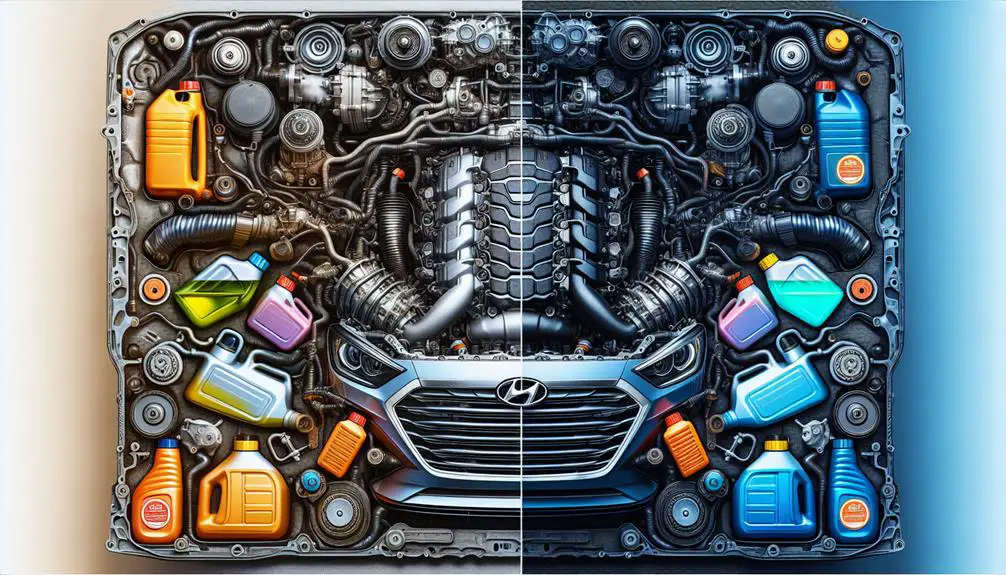
Using good engine oil and coolants is very important to keep your Hyundai Sonata’s engine working well and lasting a long time. Good engine oil helps to keep the engine’s parts running smoothly by reducing friction and wearing out less quickly. It also takes heat away from the engine to stop it from getting too hot.
Coolants are important because they help control the engine’s temperature and stop it from getting too hot. Together, engine oil and coolants help keep the engine at the right temperature, which helps prevent damage and makes the engine last longer.
When choosing engine oil, it’s important to pick the type that your car’s manual recommends. Using the wrong oil or low-quality oil can cause the engine to wear out faster, which can lead to serious problems like the engine stopping working.
It’s also important to choose the right coolant for your Hyundai Sonata. Coolants not only help control temperature but also stop corrosion and rust in the cooling system. Using the wrong coolant or mixing different coolants can make the cooling system less effective, which can cause the engine to overheat and get damaged.
It’s also important to regularly check the levels and condition of the engine oil and coolant. Over time, these fluids can become less effective, so following the recommended maintenance schedule is crucial.
How to Monitor Your Hyundai Sonata for Early Warning Signs
Step 1:
Listen carefully for any unusual noises or vibrations while you’re driving your Hyundai Sonata. Be alert to any knocking, tapping, or grinding sounds, as these could suggest problems with engine components. Also, take note of any strange vibrations that come along with these noises.
Step 2:
Keep a close eye on your dashboard warning lights. Make an effort to understand what each warning light signifies. Especially focus on the check engine light, oil pressure light, and temperature warning light. Should any of these lights illuminate, it’s a signal that there might be a developing issue with the engine or its auxiliary systems.
Step 3:
Regularly check the fluid levels in your Sonata, including oil, coolant, and transmission fluid. Ensure these fluids are within the recommended levels. Watch out for any sudden drops in these levels, as this could indicate leaks or internal engine problems.
Step 4:
Monitor any changes in your vehicle’s performance. This includes decreases in power, acceleration, or fuel efficiency. Such changes can be indicative of engine trouble and addressing these issues early can prevent more significant problems down the line.
Steps to Take if Your Hyundai Sonata Engine Has Already Seized

Step 1: Stop Driving Immediately – Cease driving at the first sign of engine trouble, like knocking sounds, power loss, or excessive smoke. Pull over safely and turn off the engine to avoid further damage.
Step 2: Contact a Professional – As soon as possible, get in touch with a qualified mechanic or your nearest Hyundai dealership. They’ll advise on the necessary steps and arrange for towing to a service facility.
Step 3: Assess the Damage – A mechanic will inspect the engine to determine the extent of the damage and provide a detailed evaluation. Based on this assessment, they’ll decide if the engine requires repairs or a full replacement.
Step 4: Consider Warranty Coverage – Check if your Hyundai Sonata is under warranty and if the engine issue is covered. This could significantly reduce or eliminate repair costs.
Following these steps immediately after experiencing engine seizure can help limit damage and potentially decrease repair costs. Always prioritize safety and seek professional advice to effectively address the problem.
Financial Implications of a Seized Engine in Hyundai Sonata
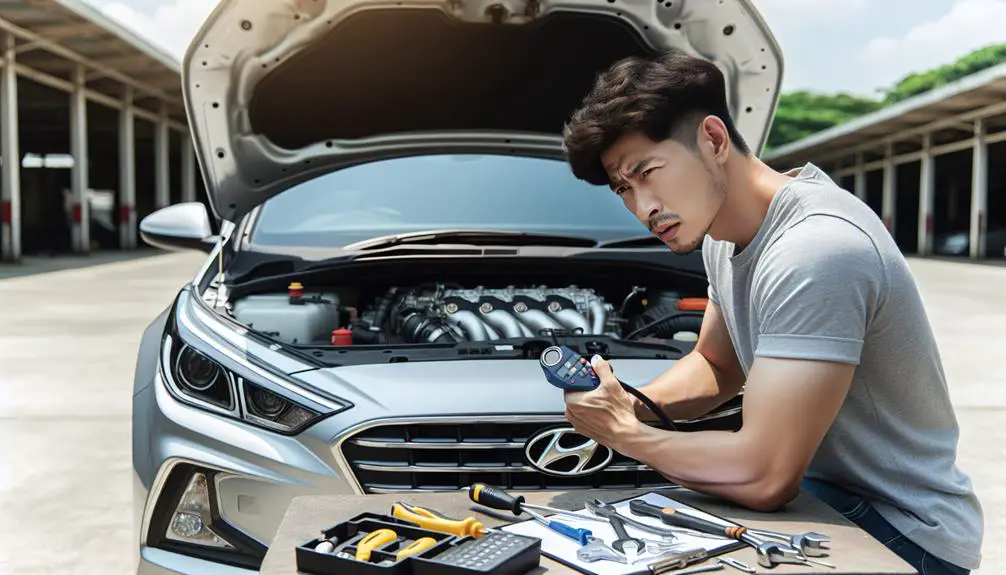
If your Hyundai Sonata has a seized engine, you might worry about how much it will cost, whether insurance or warranty will cover it, and how to save money when dealing with service providers.
The cost to fix a seized engine in a Hyundai Sonata can vary a lot. Small fixes, like if it seized because it didn’t have enough oil, might cost between $500 and $1,000. But, if the engine needs major repairs or has to be replaced, it could cost between $2,500 and $5,000 or even more. It’s important to get a detailed cost estimate from a trusted mechanic or a dealership before deciding what to do.
If your engine seized because of an accident or vandalism, your insurance might cover it. But, if it seized due to normal wear and tear or not maintaining it well, insurance mightn’t cover it. Warranty coverage also varies. If your Sonata is still under the manufacturer’s warranty, fixing or replacing the engine might be covered, but you should check the warranty details to be sure.
To negotiate with service providers, it’s helpful to get several quotes to understand the price range and try to get a better price. Ask if there are any discounts or payment plans. You could also contact Hyundai’s customer service to see if they can offer any help or goodwill assistance. Always look for ways to lower the cost of fixing or replacing your Sonata’s seized engine.
FAQs
Can regular maintenance completely prevent engine seizure in Hyundai Sonata?
No, regular maintenance can’t completely prevent engine seizure in a Hyundai Sonata. However, it significantly reduces the risk by ensuring the engine operates under optimal conditions.
What is the average lifespan of a Hyundai Sonata engine before risks of seizure increase?
A Hyundai Sonata engine typically lasts between 200,000 to 250,000 miles. Factors like maintenance, driving habits, and vehicle use impact this lifespan.
Regular care and addressing issues early can extend engine life and prevent seizure.
Are there any recalls related to Hyundai Sonata engine problems?
Yes, Hyundai Sonata has experienced engine-related recalls.
Notably, in 2015, over 470,000 sedans were recalled due to engine failure risks from debris.
In 2017, certain models faced recalls for assembly faults potentially causing bearing wear.
Wrapping Up
If your Hyundai Sonata’s engine stops working, don’t worry. First, find out what’s wrong and fix it.
Think about how much it will cost. Look for early warning signs and fix problems fast to avoid bigger issues.
Check if you can fix it, get a new one, use insurance, or if it’s still under warranty.
Doing this the right way can help you fix your car without spending too much money.